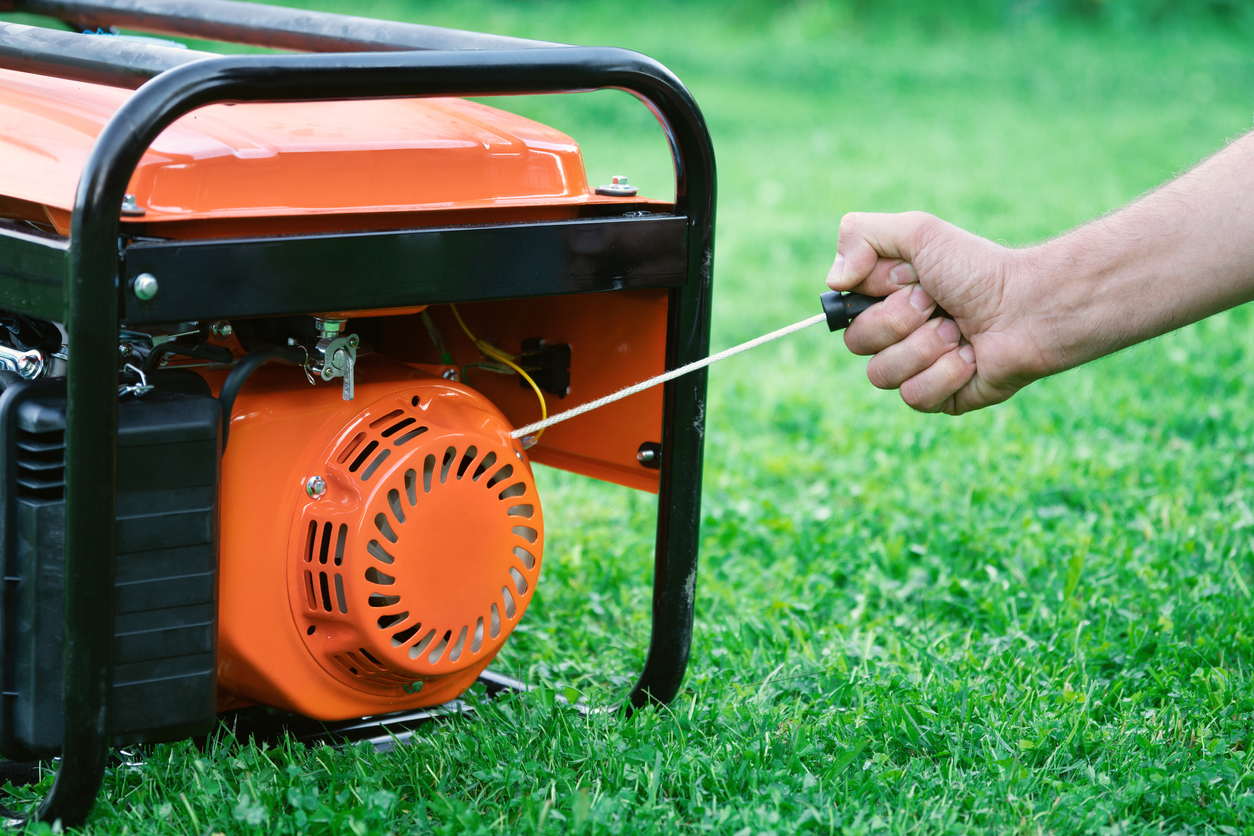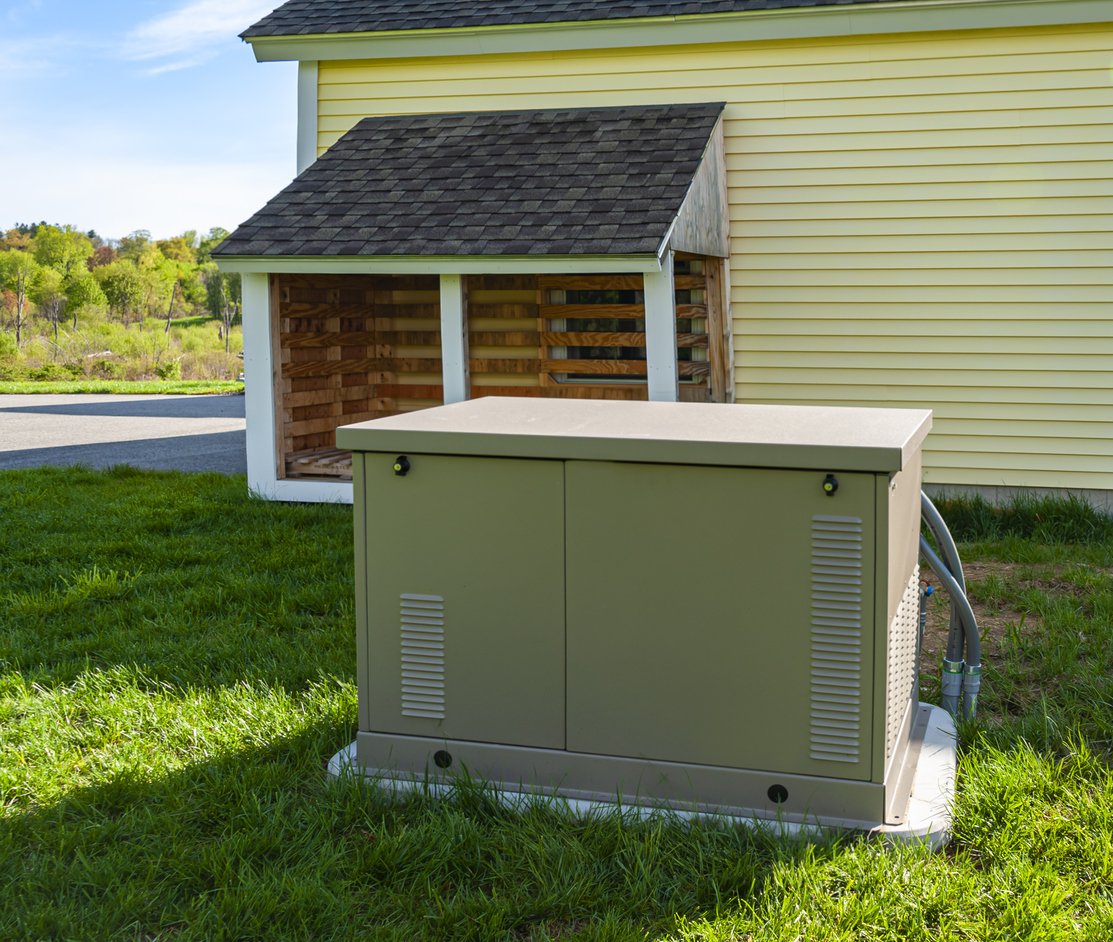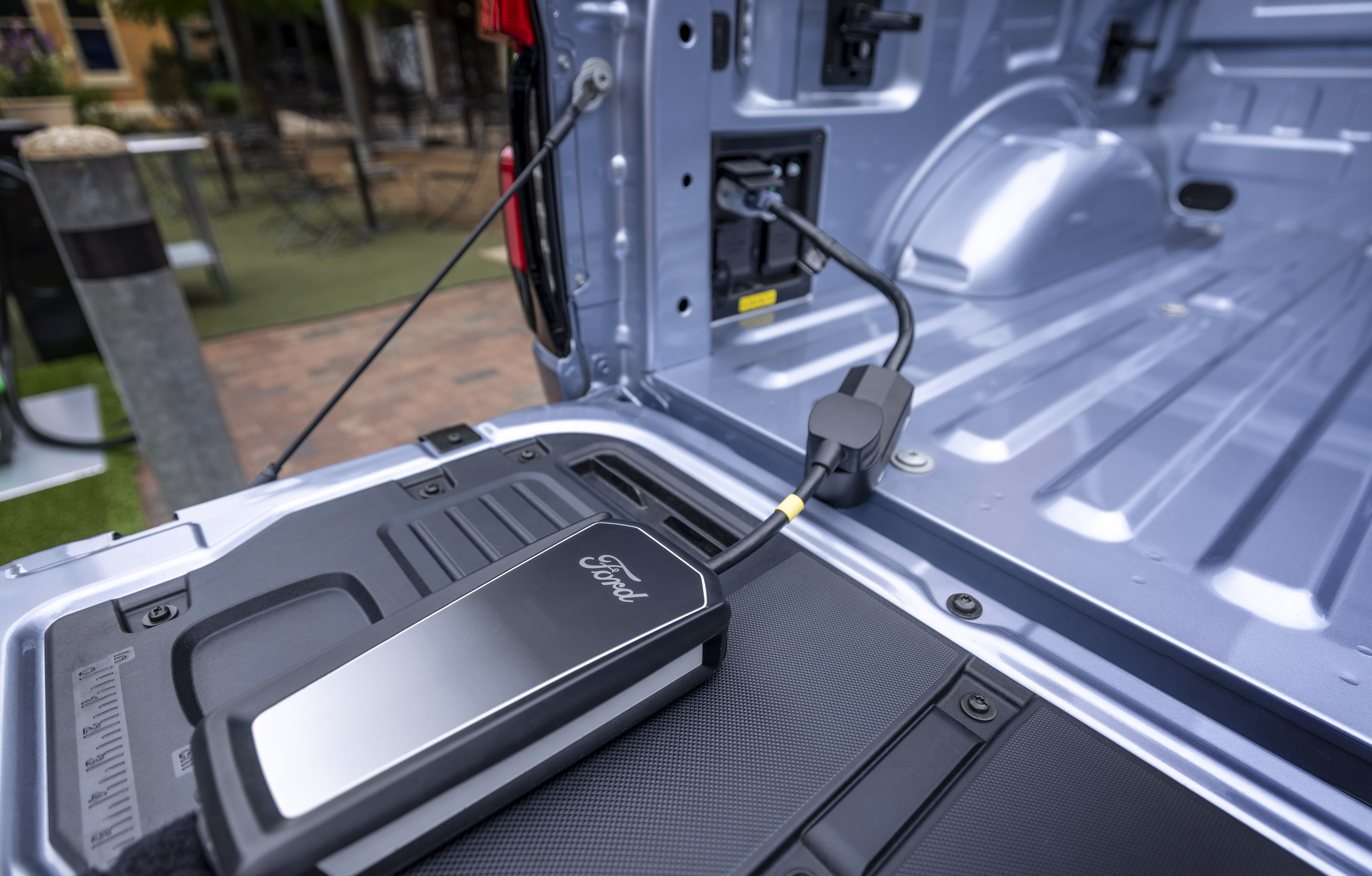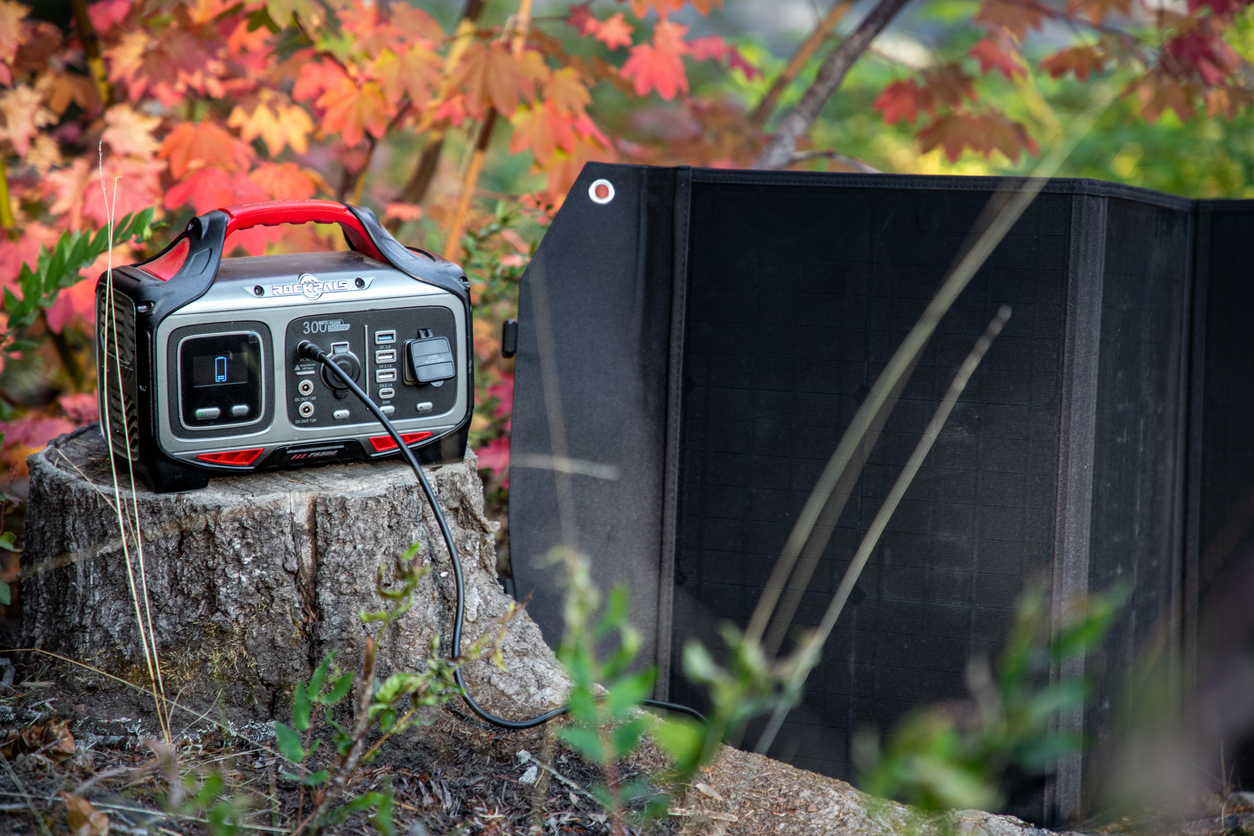There’s a power outage in your neighbourhood. What do you do? From the ever-changing weather in our city to animals interfering with hydro lines, outages are unwelcome but unavoidable. So, what is the best way to ensure that your life isn’t disrupted too much? An energy source that you can control. We have had lots of questions lately about generators. How they work, which model to choose, and what the benefits are. Let’s plug into this conversation.
Portable generators
The light hum that you hear at campgrounds when everyone is slowly starting to wake up for the day is more than likely coming from a portable generator. Used by campers and homeowners alike, these power sources are convenient, affordable, and portable. Usually powered by gas or propane, they are easily booted up and ready to jump into action when you need them most.
Let’s talk about workload. What can these small but mighty generators actually support? As stated before, they are most commonly found in campsites, but may be used at tailgates, for short outages at home, cottages, and more. This means that their output is reliable but it does err on the smaller side. Think kitchen appliances, power tools, lights, or phones. Disclaimer: not all models will roast your favourite cup of joe while you’re out in the woods. It takes roughly 1,000 watts to brew your morning goodness. Use this handy wattage worksheet to find out how much energy common appliances use.
Standby generators
The next class of power sources are standby generators. Like their trusty little sibling mentioned above, they run on propane or natural gas. These are particularly convenient because they will automatically start when you need them and turn off when you don’t. They are permanently installed as part of your house’s power supply. This also means that you don’t need any additional extension cords that can get in the way. These come in a variety of sizes that can cover essential circuits or power your whole house. From cooling your home to heating your food, they can do it all– simultaneously.
Power from your wheels
When you think of cars that could power your house your first thought is probably a Tesla battery taking on that load. And while you are correct in thinking that, did you know that Ford can now incorporate generators into their new hybrid and fully electric Lightning F-150s? Did you also know that it can power a whole house for up to three days? Their new onboard generator produces up to 7.2kW of power when being energized by its running engine. This can be used to power up your home via an extension cord, like a portable generator would, or if you prefer to go a more integrated route, you have the option to install a transfer switch which would directly power your selected circuits. To boot, the dash within the vehicle shows you your consumption and fuel levels. Click here to learn more about one homeowner’s experience with his Ford F-150 hybrid powering his house.
Solar powered generators
We wouldn’t be true to our net zero by 2030 selves if we didn’t mention the most earth friendly option of all: a solar powered generator. While these green power banks don’t output as much energy as some of their fuel consumption heavy competitors, it does have one major benefit: its power source is free. Additionally, because they operate as more of a rechargeable battery, there is no oil or maintenance to upkeep. They are also quieter, lighter, and can be used indoors. In terms of what kind of appliances can run off of it, there is a wide range of capacity in the solar world. These machines are measured by their watt-hours that they output. One watt-hour means 1 watt over an hour of time. If you scroll back to the wattage worksheet, you can see that an AM/FM radio requires 100 watts to run. Therefore, just to run the radio alone, on a solar powered generator with a capacity of 500 watt-hours, your radio would last for five continuous hours. All in all, like the generators mentioned above, the more capacity the better when it comes to powering up your home and keeping you and your family safe.
Safety tips
This is an important reminder to always use safe practices when utilizing fuel-powered generators. Under no circumstances should you ever have a generator in an enclosed space, close to a window, or in your garage. There must be plenty of ventilation as they emit gasses that are poisonous to both humans and animals. Generators also pose fire and electrocution hazards. Click here to learn more about generator safety.
While a generator is one of the most important tools to keep you and your loved ones safe during an outage, there are a few other items that can help, too. Consider taking a look at our Ultimate Emergency Kit checklist to ensure that you’re ready to tackle anything that Mother Nature throws our way.



